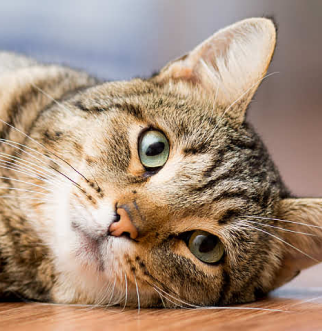
-
Find the right food for your pet
Take this quiz to see which food may be the best for your furry friend.
Find the right food for your pet
Take this quiz to see which food may be the best for your furry friend.
Featured products
 Adult 7+ No Corn, Wheat, Soy Chicken & Brown Rice Dog Food
Adult 7+ No Corn, Wheat, Soy Chicken & Brown Rice Dog FoodSupports energy level and beautiful coat in mature dogs
Shop Now Adult Perfect Weight & Joint Support Chicken Recipe Dry Dog Food
Adult Perfect Weight & Joint Support Chicken Recipe Dry Dog FoodThis weight management and mobility support dog food was created with Hill’s unique understanding of the biology of overweight dogs.
Shop Now Adult 7+ Perfect Digestion Chicken, Whole Oats & Brown Rice Recipe Dog Food
Adult 7+ Perfect Digestion Chicken, Whole Oats & Brown Rice Recipe Dog FoodScience Diet's breakthrough nutrition supports ultimate digestive well-being & healthy microbiome for dogs age 7+
Shop NowFeatured products
 Adult Perfect Digestion Chicken, Barley & Whole Oats Recipe Cat Food
Adult Perfect Digestion Chicken, Barley & Whole Oats Recipe Cat FoodScience Diet's breakthrough nutrition supports ultimate digestive well-being & healthy microbiome
Shop Now Perfect Weight Salmon & Vegetable Canned Cat Food
Perfect Weight Salmon & Vegetable Canned Cat FoodOver 70% of cats lost weight within 10 weeks when fed this nutrition
Shop Now Adult Savory Chicken Entrée Cat Food
Adult Savory Chicken Entrée Cat FoodPrecisely balanced nutrition with the delicious taste of savory minced chicken to help fuel the energy needs of cats during the prime of their life
Shop Now -
Dog
- Dog Tips & Articles
-
Health Category
- Weight
- Food & Environmental Sensitivities
- Urinary
- Digestive
- Joint
- Kidney
-
Life Stage
- Puppy Nutrition
- Adult Nutrition
- Senior Nutrition
Cat
- Cat Tips & Articles
-
Health Category
- Weight
- Skin & Food Sensitivities
- Urinary
- Digestive
- Kidney
-
Life Stage
- Kitten Nutrition
- Adult Nutrition
Featured articles
 The Incredible Science Behind Your Pet's Microbiome
The Incredible Science Behind Your Pet's MicrobiomeLearn what a pet's microbiome is, how it contributes to your pet's gut & overall health, and why nutrition is important in maintaining healthy microbiomes.
Read More Pet Food Storage Tips
Pet Food Storage TipsDiscover how and where to store your dry, as well as canned, dog and cat food. Learn how to find the "best before" dates on all Hill's pet food packaging.
Read More Water
WaterDiscover why water is the most important nutrient for your dog or cat to live a healthy life. Find out how much water your pet should consume each day.
Read More -
Find the right food for your pet
Find the right food for your pet


Should you be worried if your cat's nose is running? It really depends on the situation. The truth is that while some drippy cat noses can be easily treated, it is sometimes indicative of a larger health issue. Read on to learn what causes runny noses in cats and to find out when you should take your cat to the veterinarian for treatment.
Why Your Cat's Nose Is Running
A cat with a runny nose might raise concerns for pet owners. When your kitty has a runny nose, it's likely due to inflammation, trauma or infection of the tissues in their nasal cavities and sinuses.
But if your cat is consistently snotty, then they could have an upper respiratory infection. Most upper respiratory infections in cats are caused by viruses, like herpes viruses and caliciviruses are the primary culprits behind runny noses in cats, according to the Merck Veterinary Manual. Bacterial infections are the second most common cause of cat runny noses, which include Chlamydophila felis and Bordetella bronchiseptica. Thankfully, if your cat has had their recommended vaccines their risk of contracting these infections is dramatically diminished.
Beyond simple upper respiratory infections, though — most of which are mild and often resolve on their own without treatment — there are a number of possible explanations for why your cat's nose is running, including:
- Rhinitis: In general, rhinitis refers to the inflammation of the nasal passages, which leads to a drippy cat nose. Rhinitis can be caused by an upper respiratory tract infection, bacteria, a virus, and, less commonly, fungus. Allergies are also a possibility, but they're not an especially common cause of rhinitis in cats.
- Foreign bodies: When a cat inhales a foreign objects, whether a piece of food or a strand of yarn, they can get a runny nose with colored discharge.
- Nasal cancer: This type of cancer can be aggressive in cats. In its early stages, it can lead to a simple runny nose, but may eventually progress to facial swelling, but it could progress to facial swelling, thick or discolored discharge, pain, and congestion. This is more often seen in adult cats.
- Bloody nose: Blood clotting problems, cancer, foreign bodies or inflammatory disorders can lead to a bloody nose.
- Trauma: Blows to the nose can cause bloody discharge that turns clear as the swelling subsides. Nasal discharge resulting from trauma can also become infected and turn greenish-yellow.
- Toxic irritants: Exposure to toxins can lead to severe nasal irritation and inflammation, which can, in turn, lead to a runny nose. These are most common in younger cats.
- Food allergies: Some cats experience nasal discharge or congestion and a cat's nose dripping.


Tasty Tips
Healthy pets are happy pets, and no one is a better resource than your pet’s veterinarian.

The truth is that while some drippy cat noses can be easily treated, it is sometimes indicative of a larger health issue.
When to Take Your Cat to the Veterinarian
Just because your cat's nose is dripping clear liquid doesn't necessarily mean you need to dash off to the veterinarian. In most cases, a runny nose is part of the normal nasal clearing process and/or the result of an infection that will clear up on its own. If the discharge is green or yellow, persisting for longer then a few days, or your cat seems ill (not eating, lethargic) then it’s time to take your kitty to the veterinarian.
Common signs of an upper respiratory infection in cats include sneezing, nasal discharge, watery eyes, coughing, oral or nasal ulcers, congestion, fever, and hoarseness. These common signs tend to accompany more severe upper respiratory tract infections and often warrant a trip to the veterinarian to ensure you can get your cat back to healthy.
More problematic signs you should be on the lookout for include severe eye swelling, bloody or greenish discharge, extreme lethargy, a high fever, poor appetite and difficulty breathing. Cats with these signs may just have a nasty cold, but they're also more likely to have bronchopneumonia or even cancer. Take your cat to their veterinarian right away if you notice any of these signs. Early treatment can make a big difference.
Cat Runny Nose Treatment
If you have concerns about your cat having a runny nose, then you should always consult your veterinarian. While sometimes a runny nose is just a runny nose, the potential of it being a greater health concern is worth getting an expert opinion to help keep your kitty feeling happy and healthy.
Cat congestion, as with any cat health issue, needs a vet first to first determine the cause before making treatment recommendations. Your cat's vet can attempt to pinpoint what's causing their runny nose by conducting diagnostics tests including blood work, X-rays, and in some cases a CT scan of your kitty’s head. With some cats, more testing may be needed. If the veterinarian determines that treatment is necessary, they may prescribe medications like antibiotics or anti-inflammatories to help clear the nasal passages and alleviate congestion. They may also recommend using a nebulizer machine that delivers medicine through a vapor. In some cases, it takes time to find the right treatment so be patient with the process as your veterinarian works with you and your cat.
While runny noses are often harmless, know that even severely congested cats can often be effectively treated. If ever in doubt, always consult your veterinarian about how to treat a cat with a cold or other nasal concerns.


Dr. Patty Khuly is an award-winning veterinarian known for her independent thinking, her spirited pet advocacy, her passion for the veterinary profession, and her famously irreverent pet health writing.
Dr. K is an honors graduate of both Wellesley College and the University of Pennsylvania School of Veterinary Medicine. She received her MBA at The Wharton School of Business as part of the prestigious VMD/MBA dual-degree program. She now owns Sunset Animal Clinic, a veterinary practice in Miami, Florida.

See what Vets have to say
Read reviews from the experts and see why Hill's is the #1 Veterinarian Recommended brand.
See what Vets have to say
Read reviews from the experts and see why Hill's is the #1 Veterinarian Recommended brand.



